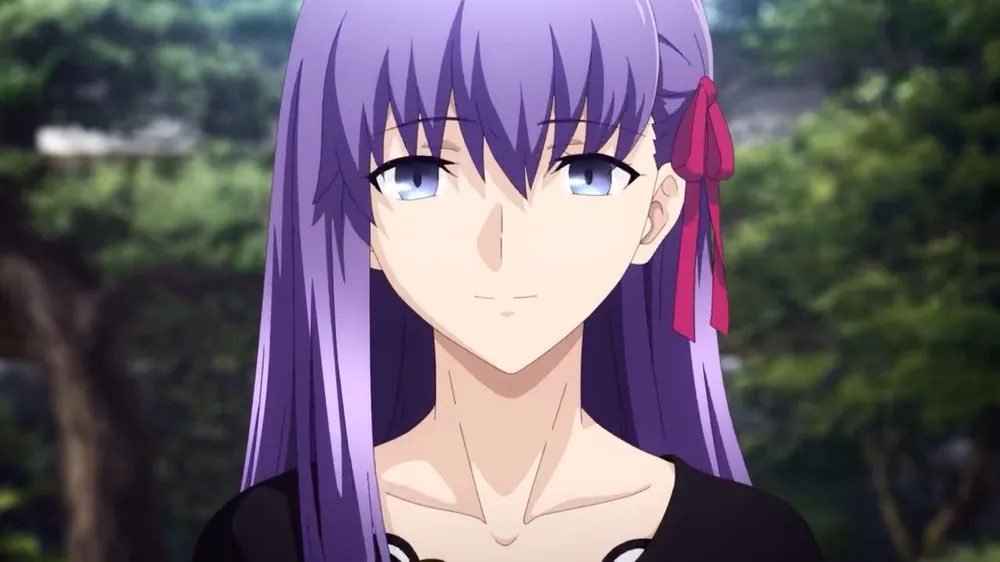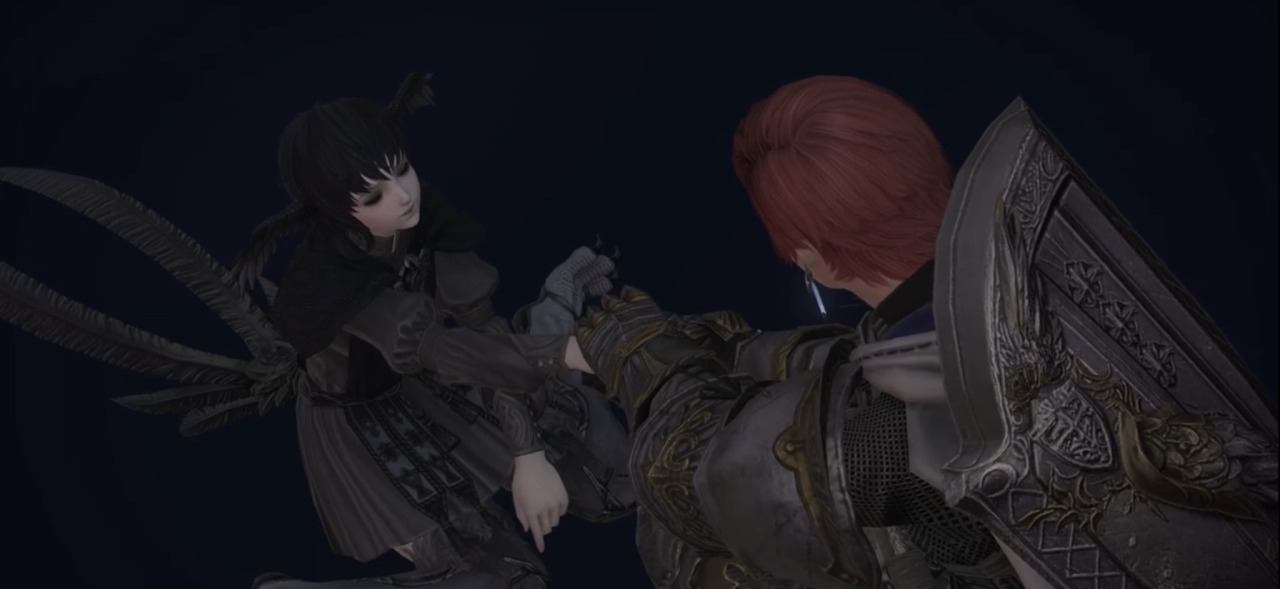Meta: The Redeemed Villains and Snape's Evaluation
Quote from comet on September 19, 2024, 3:14 pmSource-me (Tumblr, Reddit)
If Lily hadn’t been in danger, every time I see someone call Snape a selfish piece of garbage who would have continued as a Death Eater, I think of the stories from the novels and games I’ve read and seen so far.
The redeemed villains I’ve seen usually had no regrets left in the world and committed massacres, but many of them experienced either "the sacrifice of the one person they cherished most before their fall" or "the discovery of true friendship and the answers they sought," leading to their redemption.
- Redeemed because of the sacrifice of a cherished person before their fall (Fate - Sakura).
- Redeemed through experiencing true love and friendship (UNDERTALE - Asriel).
- Redeemed by finding the answers they had been seeking (FFXIV - Meteion).
There are countless villains who committed massacres and were redeemed through someone’s sacrifice. While there are many judgments—both good and bad—about them, I have never seen them labeled as "selfish pieces of garbage" like the character Snape.
These characters had no regrets and had never experienced a single true value. Yet, they ultimately learned the importance of a beloved person or were redeemed through their sacrifice. Isn’t it absurd to say they should be regarded as “selfish garbage”? Shouldn’t we consider it fortunate that they managed to remember and cherish that one precious value?
Human nature is indeed cruel, cunning, and often more selfish than we think. When friends fall out, negative feelings usually arise, often erasing good memories and emotions, all for the sake of one’s own peace of mind.
Snape was estranged from Lily. Yet, despite being a "bad character" as acknowledged by the author, he didn’t seem to harbor the feelings described above for Lily. If he were truly a selfish jerk, he would have likely remembered her only as the annoying “Mudblood girl” who got on his nerves.
He held onto the memories and feelings he built over 6-7 years for someone who wasn’t even family. Just that shows he was remarkable compared to ordinary people, and it’s hard to understand why he is labeled as a selfish piece of garbage for cherishing those memories. Even from a villain's perspective, Snape genuinely loved Lily, taking on that difficult role. Rowling stated that he gained nothing from that endeavor.
Ultimately, regardless of success or failure, Snape chose to maintain a role that would be historically remembered as that of “human trash” in the eyes of the public. He did this solely because he loved Lily and wanted to honor her wishes, and He wanted to protect many other people in the war. Is that truly garbage?
If Snape was nothing more than a selfish piece of garbage who couldn’t redeem himself without Lily, then I find it puzzling why the redeemed villains I’ve seen in stories don’t receive similar criticism. They also managed to find redemption through the sacrifices of protagonists or brave individuals.
Source-me (Tumblr, Reddit)
If Lily hadn’t been in danger, every time I see someone call Snape a selfish piece of garbage who would have continued as a Death Eater, I think of the stories from the novels and games I’ve read and seen so far.
The redeemed villains I’ve seen usually had no regrets left in the world and committed massacres, but many of them experienced either "the sacrifice of the one person they cherished most before their fall" or "the discovery of true friendship and the answers they sought," leading to their redemption.
- Redeemed because of the sacrifice of a cherished person before their fall (Fate - Sakura).
- Redeemed through experiencing true love and friendship (UNDERTALE - Asriel).
- Redeemed by finding the answers they had been seeking (FFXIV - Meteion).
There are countless villains who committed massacres and were redeemed through someone’s sacrifice. While there are many judgments—both good and bad—about them, I have never seen them labeled as "selfish pieces of garbage" like the character Snape.
These characters had no regrets and had never experienced a single true value. Yet, they ultimately learned the importance of a beloved person or were redeemed through their sacrifice. Isn’t it absurd to say they should be regarded as “selfish garbage”? Shouldn’t we consider it fortunate that they managed to remember and cherish that one precious value?
Human nature is indeed cruel, cunning, and often more selfish than we think. When friends fall out, negative feelings usually arise, often erasing good memories and emotions, all for the sake of one’s own peace of mind.
Snape was estranged from Lily. Yet, despite being a "bad character" as acknowledged by the author, he didn’t seem to harbor the feelings described above for Lily. If he were truly a selfish jerk, he would have likely remembered her only as the annoying “Mudblood girl” who got on his nerves.
He held onto the memories and feelings he built over 6-7 years for someone who wasn’t even family. Just that shows he was remarkable compared to ordinary people, and it’s hard to understand why he is labeled as a selfish piece of garbage for cherishing those memories. Even from a villain's perspective, Snape genuinely loved Lily, taking on that difficult role. Rowling stated that he gained nothing from that endeavor.
Ultimately, regardless of success or failure, Snape chose to maintain a role that would be historically remembered as that of “human trash” in the eyes of the public. He did this solely because he loved Lily and wanted to honor her wishes, and He wanted to protect many other people in the war. Is that truly garbage?
If Snape was nothing more than a selfish piece of garbage who couldn’t redeem himself without Lily, then I find it puzzling why the redeemed villains I’ve seen in stories don’t receive similar criticism. They also managed to find redemption through the sacrifices of protagonists or brave individuals.



Quote from comet on September 19, 2024, 3:22 pmWhen I posted this on Reddit, the most impressive response I got was this:
1-I don't understand why it's viewed negatively. In the HP universe itself, Dumbledore is another central figure who gave up on his radical thoughts only after accidentally causing his sister's death. Every redemption has a reason. Snape was never an enthusiastic DE to begin with. Lily was merely a catalyst to propel him to return to the light side. Her involvement doesn't dilute the repentance and redemption of Severus. Further, I disagree with labeling him selfish because he was gaining nothing by putting himself in mortal peril.
2-Snape's is the dark path bullying victims can go down. Once the writer revealed how he'd been bullied and abused since early childhood his membership in a racist group suddenly made sense. He had no one to turn to.
Bullies tend to have better social skills than their victims often picking on them to "correct" them for not fitting in with the group. The better social skills often has faculty looking at the bullies as the "normal" kids and the victim as "weird".
Now you have a group of kids who care more about talent and skill than how weird you are and they offer you friendship and protection. If they're ultimately good people you'll end up one too. If they're racist bigots then you'll end up one too. Even if you don't believe the way they believe they're the ones being kind to you and the supposedly good thinking people treat you like garbage.
3-Now that you mention it, I’m wondering if it’s his willingness to be seen as human trash that is exactly what makes it hard for people to accept his redemption. We never get a big dramatic “forgiveness” scene signaling to readers and viewers that they are also allowed to forgive him and acknowledge what he’s done and who he’s become.
4-It would have been poor writing for someone to go work for a man who had silenced an attempt on his life, on the same team as his abusers, and against his friends, against a seemingly invincible master who is on the brink of victory, for no reason. It's already stretching credulity that he did. It would not be a redemption arc, it would be... Some sort of insta sainthood that makes no sense
When I posted this on Reddit, the most impressive response I got was this:
1-I don't understand why it's viewed negatively. In the HP universe itself, Dumbledore is another central figure who gave up on his radical thoughts only after accidentally causing his sister's death. Every redemption has a reason. Snape was never an enthusiastic DE to begin with. Lily was merely a catalyst to propel him to return to the light side. Her involvement doesn't dilute the repentance and redemption of Severus. Further, I disagree with labeling him selfish because he was gaining nothing by putting himself in mortal peril.
2-Snape's is the dark path bullying victims can go down. Once the writer revealed how he'd been bullied and abused since early childhood his membership in a racist group suddenly made sense. He had no one to turn to.
Bullies tend to have better social skills than their victims often picking on them to "correct" them for not fitting in with the group. The better social skills often has faculty looking at the bullies as the "normal" kids and the victim as "weird".
Now you have a group of kids who care more about talent and skill than how weird you are and they offer you friendship and protection. If they're ultimately good people you'll end up one too. If they're racist bigots then you'll end up one too. Even if you don't believe the way they believe they're the ones being kind to you and the supposedly good thinking people treat you like garbage.
3-Now that you mention it, I’m wondering if it’s his willingness to be seen as human trash that is exactly what makes it hard for people to accept his redemption. We never get a big dramatic “forgiveness” scene signaling to readers and viewers that they are also allowed to forgive him and acknowledge what he’s done and who he’s become.
4-It would have been poor writing for someone to go work for a man who had silenced an attempt on his life, on the same team as his abusers, and against his friends, against a seemingly invincible master who is on the brink of victory, for no reason. It's already stretching credulity that he did. It would not be a redemption arc, it would be... Some sort of insta sainthood that makes no sense
Quote from Dust Collector on September 20, 2024, 12:00 amI think the problem lies in some folks' need for instant gratification, instant answers, instant solutions. This ties to a black-and-white view of the world.
If seen from a single brief window in time, one is either right or wrong. This briefness leaves no space for change or development, and it also doesn't take a person's history into consideration. It's much easier to despise Sakura without knowing what Zouken did to her, right? It's much easier to hate Severus for calling Lily a slur and/or treating Harry & co. harshly without considering what he had to go through starting in Cokeworth and continuing at Hogwarts, and how it shaped him.
In the end, when it comes to a casual observer, it's much easier to deal with a flat snapshot of a character rather than ponder their flaws and virtues as a three-dimensional human being, because that would require empathy and acknowledgement that even an ultimately virtuous person can have their disagreeable sides.
I think the problem lies in some folks' need for instant gratification, instant answers, instant solutions. This ties to a black-and-white view of the world.
If seen from a single brief window in time, one is either right or wrong. This briefness leaves no space for change or development, and it also doesn't take a person's history into consideration. It's much easier to despise Sakura without knowing what Zouken did to her, right? It's much easier to hate Severus for calling Lily a slur and/or treating Harry & co. harshly without considering what he had to go through starting in Cokeworth and continuing at Hogwarts, and how it shaped him.
In the end, when it comes to a casual observer, it's much easier to deal with a flat snapshot of a character rather than ponder their flaws and virtues as a three-dimensional human being, because that would require empathy and acknowledgement that even an ultimately virtuous person can have their disagreeable sides.



